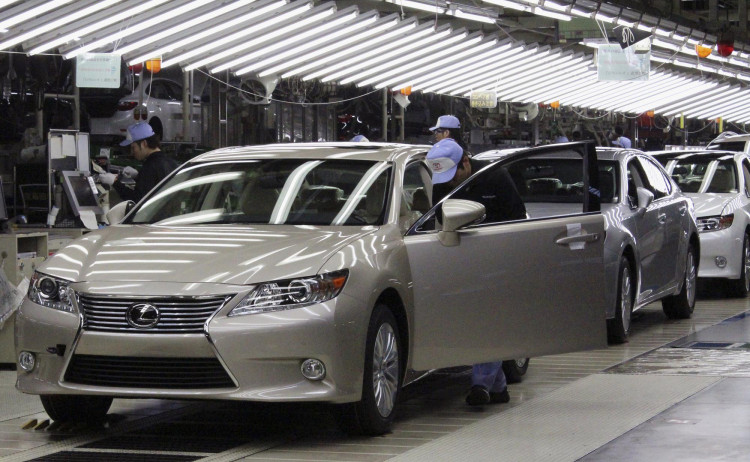Japanese automaker Toyota Motor is planning to roll out a record 9.2 million vehicles globally this year, an indication that the auto industry may be brushing off the ill effects of the coronavirus pandemic.
Shares of Toyota have rallied more than 16.4% in the last six months against the Zacks Foreign Automotive industry's advance of more than 43%, according to Yahoo Finance, citing Zacks on Thursday.
Toyota's latest production target is bigger compared to the current record of a little more than 9 million units in 2019 before the pandemic broke out, suggesting a roughly 20% rise from last year.
The auto company has notified its main suppliers of the plan, which reflects revenues momentum in mainland China and demand recovery in Japan and North America, the Nikkei reported, noting that Toyota's aggressive approach could prompt other auto manufacturers to also expand their own output plans.
Based on data by Focus2move, Toyota Group was the second largest automotive seller in the market last year, with almost 9 million units sold. That elevated the company's market share up by a tenth of a percentage point to more than 11%.
Volkswagen Group was the market leader in 2020, with 9.3 million units sold. In third spot was Renault Nissan Alliance with 7.95 million units sold.
Toyota's bullishness is in part propelled by its robust performance in China, where it sold a record 1.8 million cars last year, an 11% increase compared to 2019.
Toyota's revenues last year were largely steered by the high demand of new vehicle versions, particularly sport utility vehicles which include the RAV4 model.
Just like other car companies, Toyota was suffered from the coronavirus crisis. But the damage was less serious compared to its competitors, helping the company reclaim the title as the world's best-selling carmaker in 2020.
Meanwhile, Toyota is hiring the services of a Silicon Valley robotics expert to help put the final touches on a software it says will compete with Tesla's.
Called Arene, the operating system enables new features to be installed in a vehicle's existing controls and provides a platform for developers to create a new operating system.






